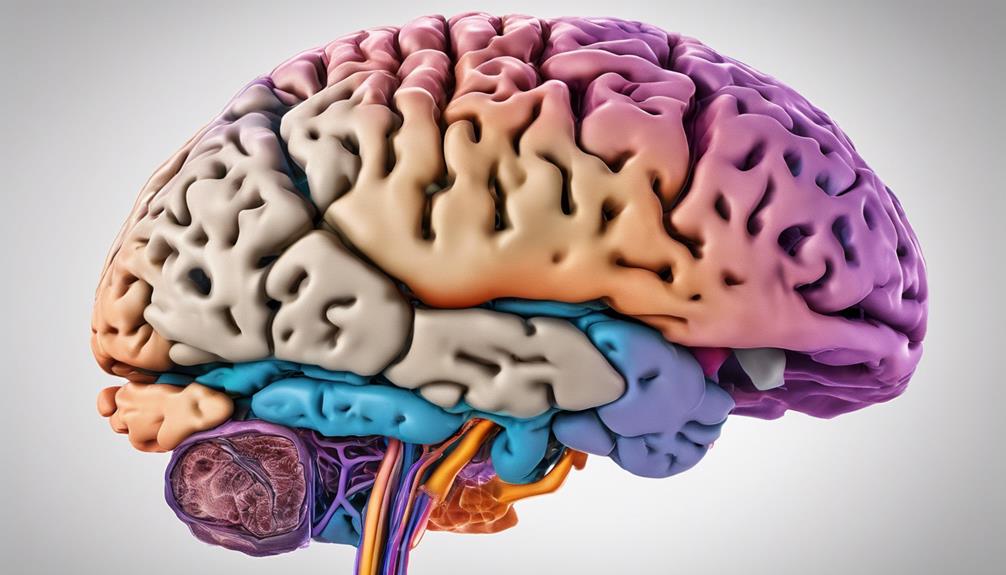In our investigation of dementia occupational therapy, we discovered methods that can assist individuals in improving their daily activities and overall quality of life.
As we navigate the complexities of dementia care, one cannot underestimate the profound impact occupational therapy can have on those affected.
From small victories to significant milestones, the role of occupational therapists in this field is both nuanced and essential.
Let's delve deeper into how these interventions shape the lives of individuals with dementia and those around them.
Key Takeaways
- Empowers dementia patients in daily tasks and overall well-being
- Enhances cognitive function and independence through tailored interventions
- Improves motor skills and coordination for better overall function
- Provides emotional support, creating a safe and supportive environment
Benefits of Dementia Occupational Therapy
Dementia occupational therapy empowers individuals living with dementia by enhancing their ability to engage in daily tasks and improve their overall well-being. Occupational therapy plays a crucial role in improving the activities of daily living (ADL) for dementia patients. By focusing on tailored interventions, occupational therapists address the specific needs and challenges faced by each individual, leading to significant improvements in their cognitive function and independence.
Furthermore, occupational therapy is instrumental in managing the behavioral and psychological symptoms of dementia (BPSD), which can often be challenging for both the patients and their family carers. Through home-based occupational therapy sessions, patients receive personalized care in familiar surroundings, promoting a sense of comfort and security. This approach not only enhances the quality of life for dementia patients but also alleviates some of the burdens faced by their dedicated family carers.
In essence, dementia occupational therapy is a valuable resource that not only enhances the well-being of individuals living with dementia but also provides much-needed support for their families.
Role of OT in Cognitive Enhancement

Enhancing cognitive function in individuals living with dementia is a key focus of occupational therapy, utilizing tailored interventions and activities to support their cognitive enhancement. Occupational therapists (OTs) play a crucial role in assessing individual goals, routines, and activities to create personalized strategies for cognitive improvement. By identifying areas of difficulty, OTs can offer practical tools and solutions to help individuals with dementia maintain memory and cognitive function. This targeted approach not only aims to enhance cognitive abilities but also to improve memory retention and overall functioning, ultimately leading to a better quality of life for dementia patients.
| Role of OT in Cognitive Enhancement |
|---|
| Assessing individual goals, routines, and activities |
| Providing practical tools and strategies |
| Tailoring interventions for cognitive improvement |
Through these interventions, OTs strive to empower individuals with dementia to engage in meaningful activities, preserve cognitive function, and work towards achieving their individual goals. By focusing on cognitive enhancement, OTs can make a significant impact on the lives of those living with dementia.
Improving Motor Skills in Dementia
To enhance motor skills in individuals with dementia, occupational therapy focuses on implementing targeted exercises and activities that strengthen muscles and improve coordination. Tailored interventions are designed to address specific challenges related to motor skills in individuals with dementia, such as difficulties with balance or mobility.
Engaging in activities like stretching, walking, or gentle exercises can help maintain and enhance motor function in dementia patients. Occupational therapists may utilize adaptive equipment and techniques to support individuals with dementia in performing motor tasks more effectively, promoting independence in daily activities.
Regular practice of motor skill exercises is essential as it can contribute to better overall function and independence for people living with dementia. By incorporating these tailored interventions and exercises, occupational therapy plays a crucial role in improving the quality of life and enhancing motor skills for individuals with dementia.
Emotional Support in OT Interventions

Understanding and addressing the emotional needs of individuals with dementia is a fundamental aspect of providing effective occupational therapy interventions. In our sessions, emotional support plays a vital role in helping patients navigate their feelings and experiences. By acknowledging and validating the patient's emotions, we create a safe space for them to express themselves openly. Building trust and rapport is key to establishing a supportive environment where patients feel comfortable sharing their fears and frustrations.
Through these emotional support interventions, our goal is to enhance the patient's emotional well-being and contribute to their overall quality of life. By recognizing and responding to their emotional needs, we can foster improved engagement and outcomes in dementia care through occupational therapy. It's essential to approach each session with empathy and a genuine desire to serve, ensuring that our patients feel heard, understood, and supported throughout their therapeutic journey.
Impact on Quality of Life
Navigating the emotional landscape of individuals with dementia sets the foundation for improving their quality of life through occupational therapy interventions. When it comes to dementia care, enhancing quality of life is at the core of what we aim to achieve through our tailored occupational therapy plans. Here's how we make a difference:
- We focus on improving cognitive abilities and functional goals, allowing individuals to engage in daily tasks independently.
- Our interventions help manage progressive symptoms effectively, leading to better overall well-being for those with dementia.
- By promoting independence in activities like cooking, cleaning, personal hygiene, socializing, and hobbies, we strive to enhance their quality of life.
- Our goal is to support individuals with dementia in living at home safely for as long as possible, maximizing their independence and quality of life.
Through targeted occupational therapy interventions, we work towards improving the daily lives and well-being of individuals with dementia, ultimately enhancing their quality of life.
Frequently Asked Questions
What Are 3 Things to Never Do With Your Loved One With Dementia?
We should never argue or correct our loved one with dementia, as it can lead to frustration and agitation.
Rushing or pressuring them during tasks should also be avoided, as it can cause stress and confusion.
Ignoring or dismissing their emotions isn't helpful, as validation and support are crucial.
Providing consistency and familiarity in routine and environment helps reduce anxiety.
It's important to avoid treating them like a child or talking down to them, as it undermines their dignity and self-esteem.
Does Occupational Therapy Help With Memory?
Absolutely, occupational therapy can indeed help with memory. By providing tailored memory exercises and strategies, we assist individuals in improving memory function. These personalized interventions focus on memory aids and techniques to enhance retention and recall abilities.
Our goal is to empower individuals to regain independence in their daily tasks by mitigating memory challenges. Through our memory enhancement programs, we aim to enhance quality of life for those we serve.
What 3 Skills Are Most Essential for Dealing With Clients Who Have Dementia?
Understanding the needs and emotions of individuals with dementia requires patience, empathy, and excellent communication skills. These qualities help in building trust and rapport with clients facing cognitive challenges.
Problem-solving capabilities are crucial for addressing daily obstacles and tailoring interventions to meet individual needs effectively. Flexibility in our approach is key, allowing us to adapt to the changing abilities and responses of our clients.
This approach empowers individuals to engage in meaningful activities, fostering a sense of purpose and fulfillment in dementia care.
What Is the Occupational Therapy Assessment Tool for Dementia?
Sure, the occupational therapy assessment tool for dementia is a comprehensive evaluation that examines functional abilities and challenges in daily tasks.
It assesses cognitive, physical, and emotional aspects to tailor interventions for patients with dementia.
By identifying areas of difficulty and strengths, the tool helps us create personalized plans to improve independence and quality of life.
This assessment is crucial for understanding how dementia affects daily functioning and developing effective intervention strategies.
Conclusion
As occupational therapists, we witness the transformative power of dementia occupational therapy every day. One patient, struggling to remember their loved ones' faces, found solace in painting vivid memories that brought joy to their heart.
Just like a painter carefully crafting each stroke, we tailor our interventions to enhance cognitive abilities and promote independence. Through personalized support, we paint a brighter future for those living with dementia, one brushstroke at a time.










